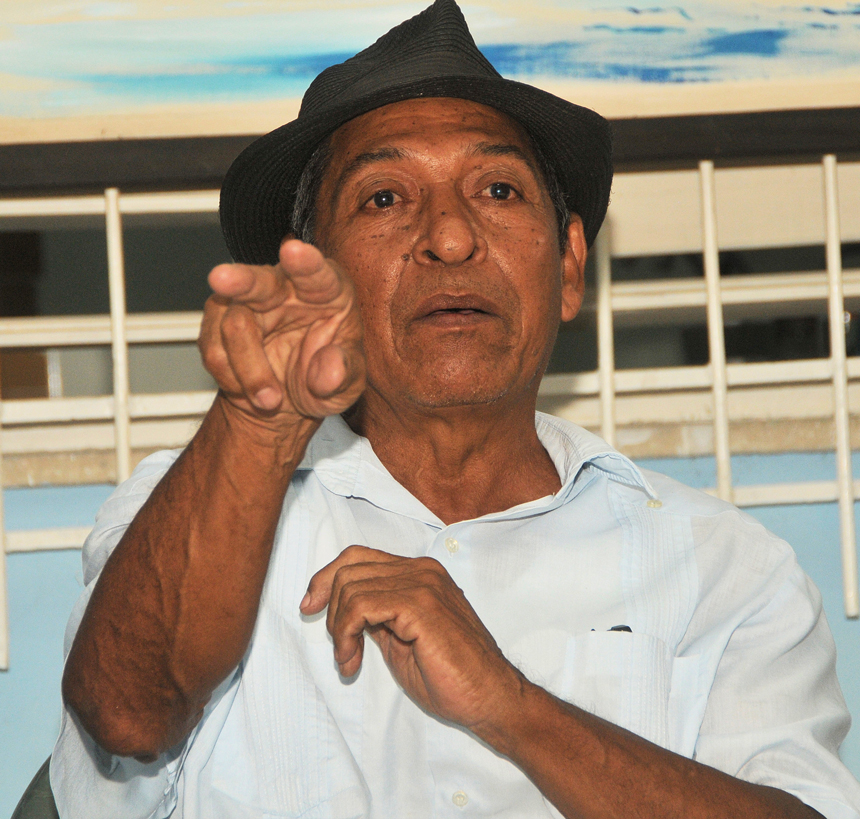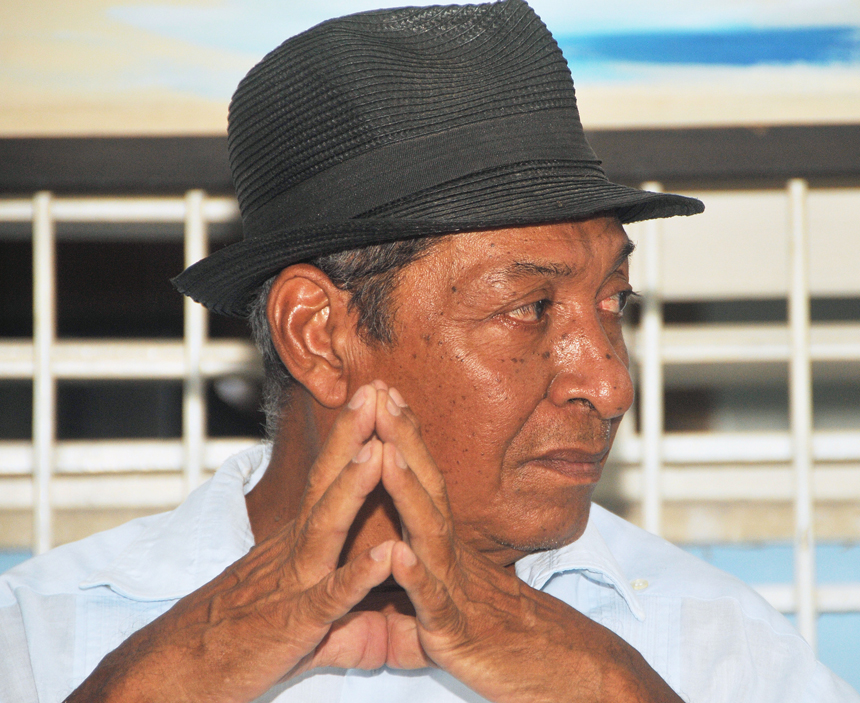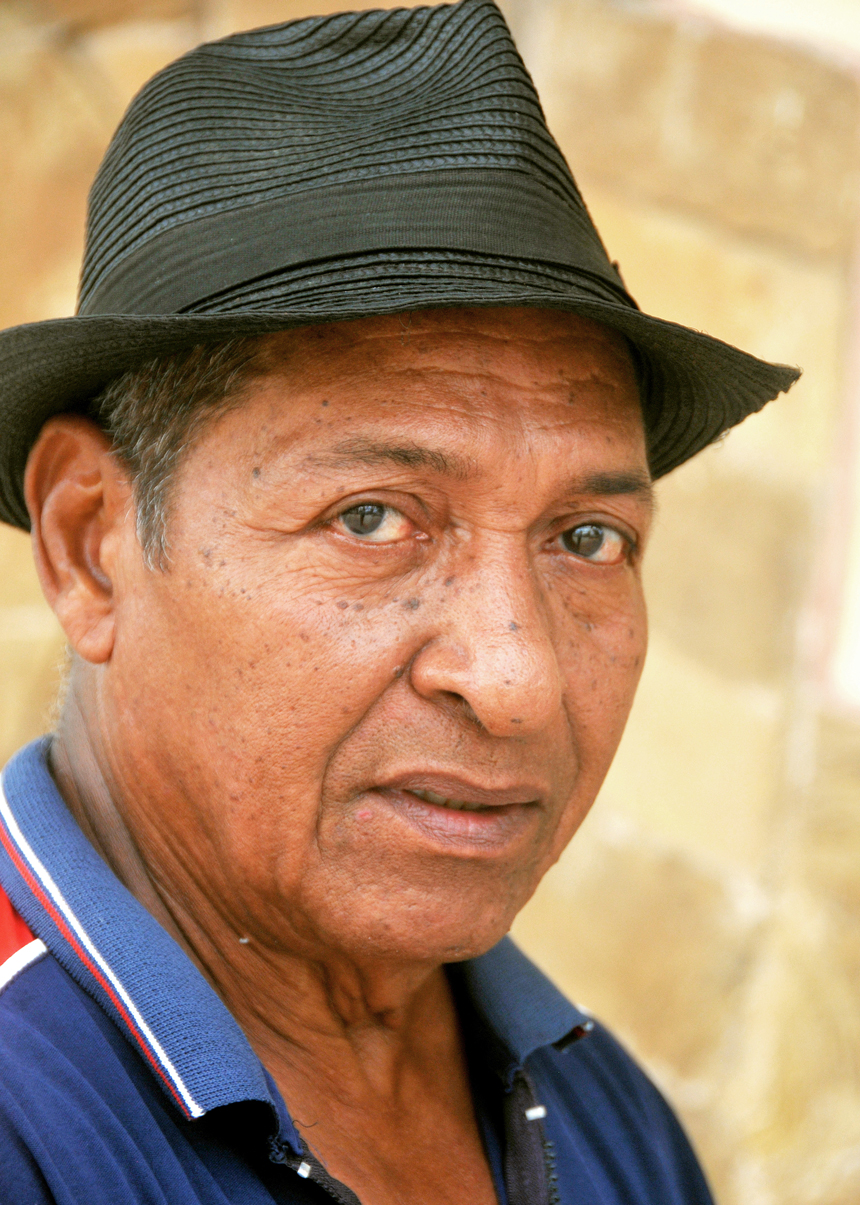
Ulises Espinosa Núñez, the seasoned man before me, now, is the eldest of the eight children of Rafaela Núñez (Fela) and Aquiles Espinosa, the "communist, very active and dangerous" according to Fermín Cowley Gallegos (Holguín Jackal), who was killed with punches in the terrible days of Bloody Easter.
"I remember very well the night they took him away. I was only eight years old, but I was used to walking the trails with my father there, in Sabanilla, the little town that now belongs to the municipality of Majibacoa where I spent a happy childhood, despite everything.”
 His gaze is lost and his memories seem to take him back to the night of that December 25th. They had returned home after a very special party; because they were celebrating the old year, yes, but it was also the anniversary of his parents' meeting and the revelry had been in the same place where the young couple met for the first time.
His gaze is lost and his memories seem to take him back to the night of that December 25th. They had returned home after a very special party; because they were celebrating the old year, yes, but it was also the anniversary of his parents' meeting and the revelry had been in the same place where the young couple met for the first time.
She, a little over seven months pregnant, and the other six boys who already had the marriage, were going back to the house, with Aquiles. They arrived where the islanders, a neighboring house, and very good friends. There, they told him not to continue with the group, and that he was in danger; but he ignored it.
Ulises was awakened the next day by the terrible screams of his mother. He still remembers how he ran next to her and dares to deny those who have said that the children lived attentively the moment when his father was taken away.
"We were all asleep when the guards arrived, no son woke up. My mother's crying got us out of bed, with that huge belly and us, little ones. Everyone mobilized to look for him because it was clear that they had taken him for no good."
Then the information was leaked that in Cuatro Caminos, in the Sarandico cemetery, Aquiles weapons were found. And everyone ran there.
"My uncle approached me, so I could look at him and that's what I did; I didn't cry, I just saw at him. He was hanging from a tree, and he had a smile on his lips. You must write this: my dad always had a pretty, wide smile that filled his whole face.
"Later, I found out that they had punched him 51 times in the body; and when I took out the remains to take them to the Combatants' Pantheon, back in 1975, I noticed that his skull was cracked from one side to the other. So, he was hit hard on the head. He was 36 years old when they massacred him like that."
His body was returned to the house. People say that it was the first time that funeral services arrived in Sabanilla. And people looked at the dead man and were surprised that the candles were not mounted on the banana vines, as was customary; on the contrary, they shined in such beautiful chandeliers. There were a lot of people and, among the wreaths, there was one from the July 26 Movement (M-26-7).
"I have been annoyed, at certain times, by the approaches to local history, in some aspects. There is a gap between 1952 and 1956; it seems that nothing happened here against Batista and they overlook the fact that two men lived, Aquiles Espinosa and Pelayo Cusidó, who came out to fight the coup on March 10; they were at the forefront of the protests; they went to the City Hall; they called the Captaincy of Las Tunas; they organized the people here.
"I have no doubts that my father belonged to the M-26-7. Indeed, he rank before in the Authentic Radical Left; but he never saw the fight as sectarian; he had no qualms about dissolving Triple A, the organization that he had founded with Pelayo Cusidó, and I have no doubts that it was to join the Fidel Castro's fight.”

"Although let me tell you, I really enjoyed my dad in every way. I never lacked a toy on Three Kings Day; on the days of working in the fields, I remember that he was in front and I was behind, throwing the seed of corn or rice, and then my uncle, sealing the hole.
"He brought me to Las Tunas for a walk. I remember that I was with him for the first time in a carnival. Then he brought me to take a picture, because I was born with straight hair and had shoulder-length hair, and he wanted to take one of me."
"Of those curiosities that life has, the photo was taken by Gallo, a pioneer of the press around here. I found it out many years after Dad died because the photographer's name was on the back of the picture, and I realized one day, almost by chance.”
"He also took me to some of his rallies. In the place they call Vista Alegre, in Las Arenas, I remember that it ended with a shooting. It was in the portal of the Urquiza house; I thought then, because my dad said things, and he was irreconcilable.”
Aquiles Espinosa chose the name of all his children; even the twins who were born just over two months after his death. And that, because he had said the names to the midwife, and she said them when the uproar over the birth of a boy and a girl flooded the house, still marked by the mourning.
He was, affirms Ulises, a delicate and always present father. "His great sin was courage, above all things, and a naivety that became terrible," he affirms while locking himself in a long silence.





